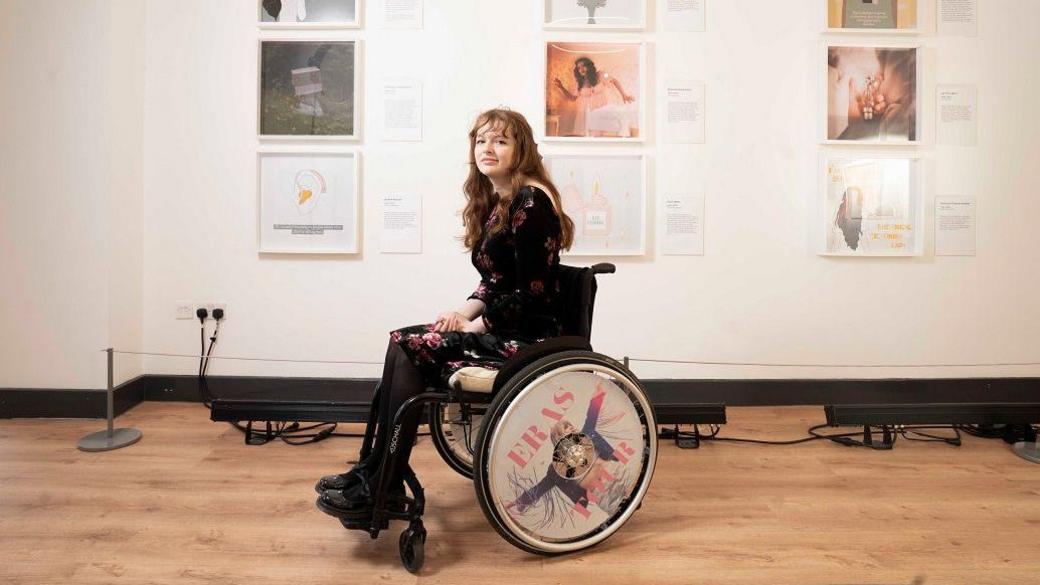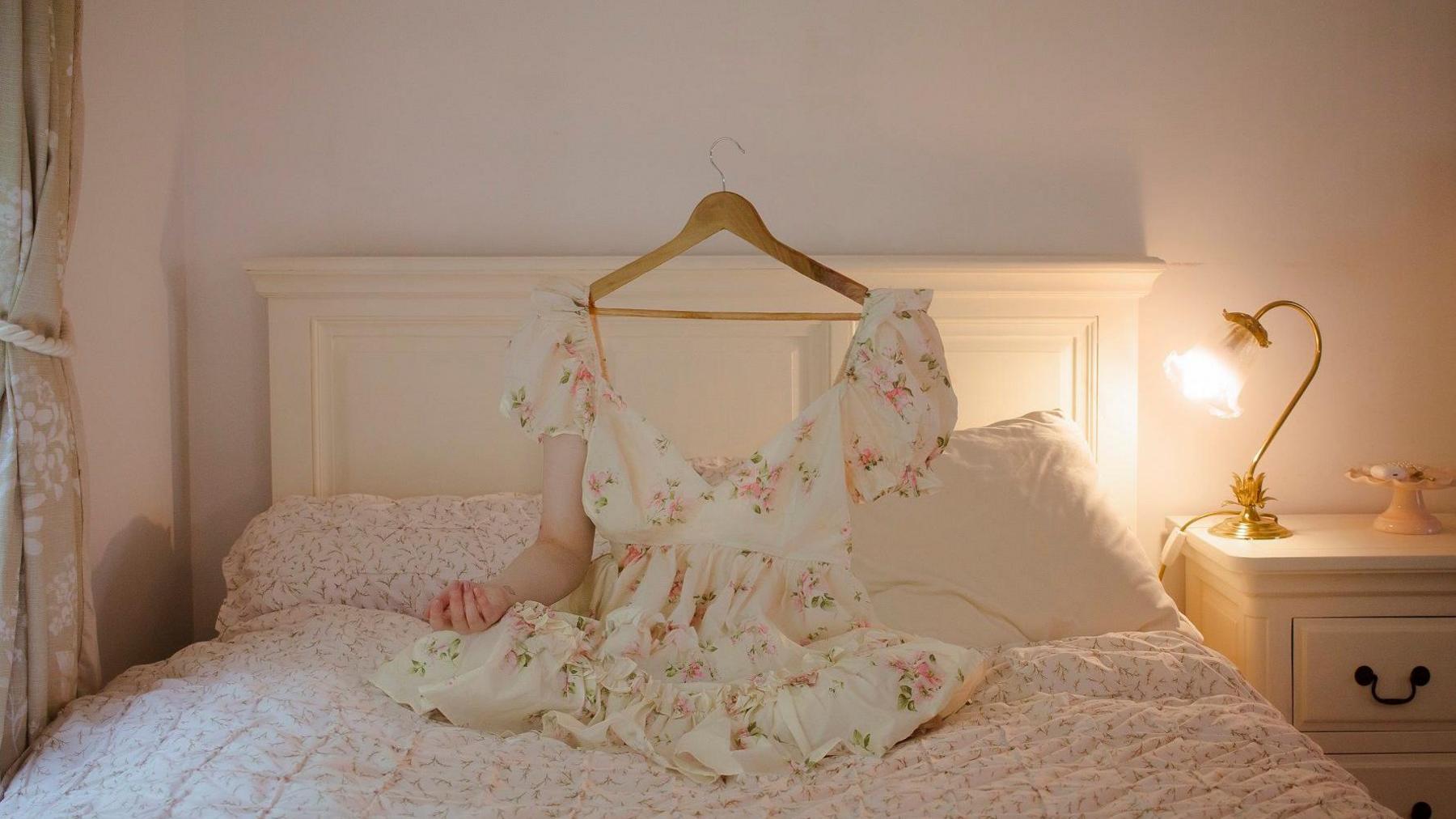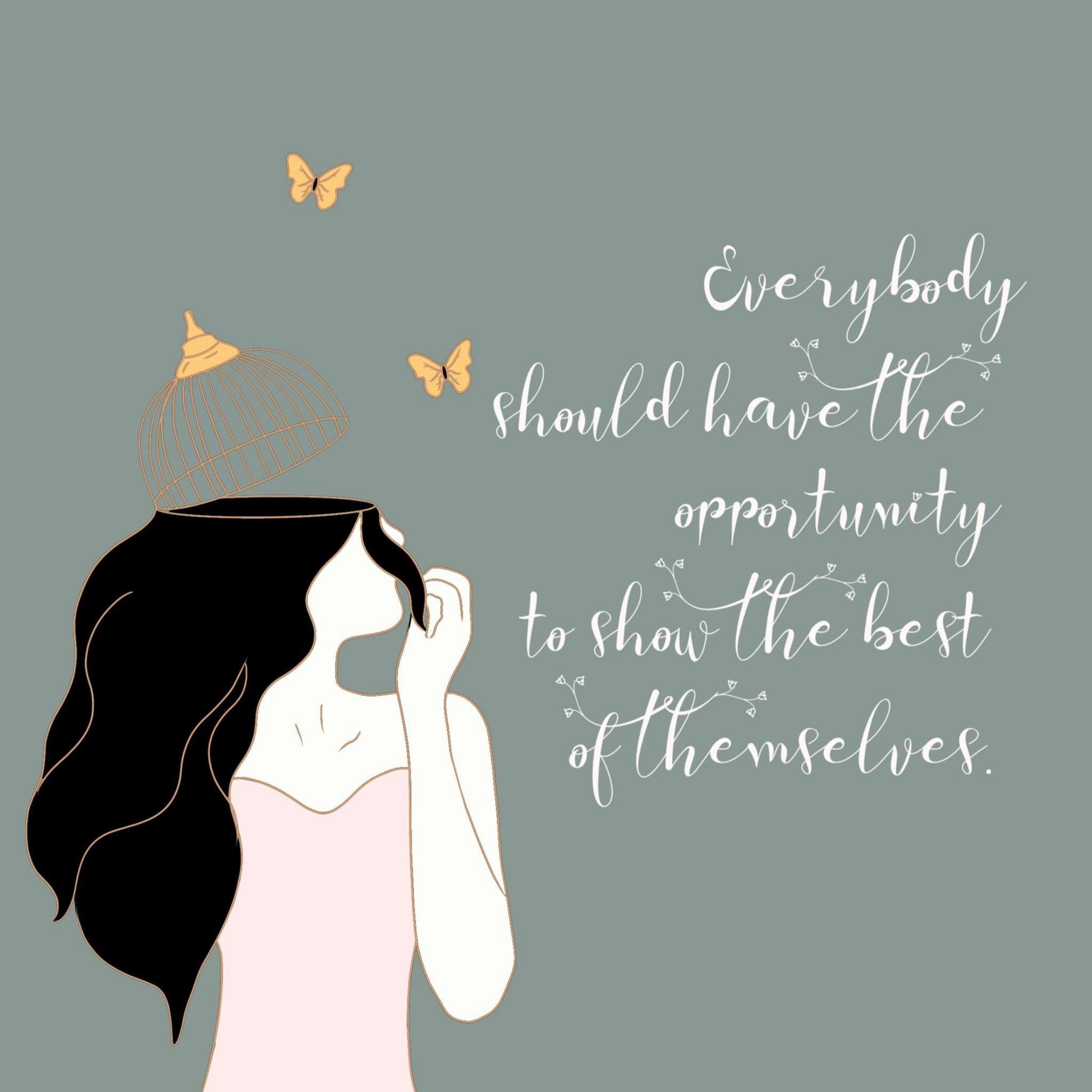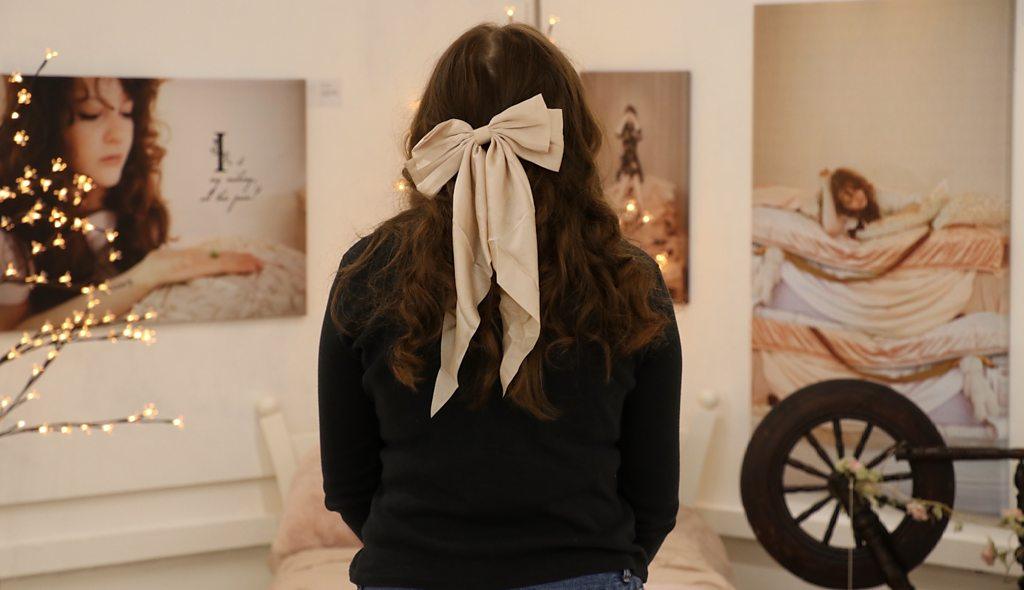Exhibition aims to help disabled workers feel seen

Artist Hope Caitlin warns many disabled people can be left isolated by workplace issues
- Published
Disabled people facing difficulties in the workplace "are not alone", the artist behind a new exhibition says.
Invisible Visible, by Hope Caitlin, is inspired by interviews with people who discuss topics she says are often overlooked.
The 23-year-old, who has chronic fatigue syndrome (CFS), says a lack of adjustments in many workplaces mean disabled people can feel left out, while health issues that are not obvious lead to further problems.
The exhibition, a combination of photography and digital illustration, is running at Bishop Auckland Town Hall, in County Durham, until 30 November.

The artworks focus on the theme of feeling invisible and of not being fully understood
Miss Caitlin, who is from the town, developed complex regional pain syndrome following an accident when she was 11.
She was later diagnosed with CFS and functional neurological disorder.
Miss Caitlin describes feeling "isolated" after having to miss a great deal of school time through what she says was "a lack of understanding and accommodation".
"People often aren't aware of the issues unless it happens to them or someone they know. Things are changing slowly, but there's more to do.
"There are ways to make adjustments and little things can make a big difference."

Key themes were picked out from interviews with disabled people and turned into artworks
Other issues can occur when "people's issues aren't visible so others assume they must be healthy and fine", she added.
"One day they might be able to do things, but on another they can't. That doesn't make their disability any less true or real.
"It can be quite exhausting and it's surprising how many people deal with things like this.
"They often think they're the only one, but they're not and it would be nice for people to know they're not alone."
The project has been a collaboration with social enterprise organisation Changing Relations, which uses art to challenge the way people think about stereotypes and behaviour, and Durham University.
Follow BBC Tees on X,, external Facebook, external, Nextdoor and Instagram, external. Send your story ideas to northeastandcumbria@bbc.co.uk.
- Published1 February 2023
